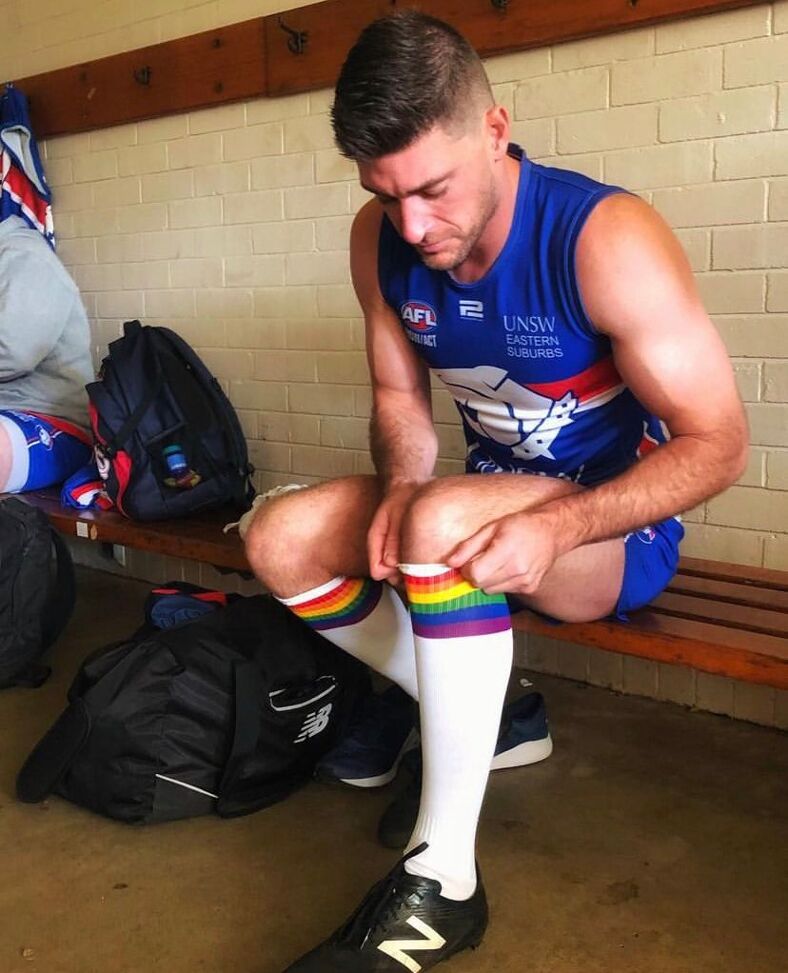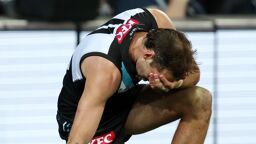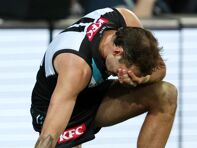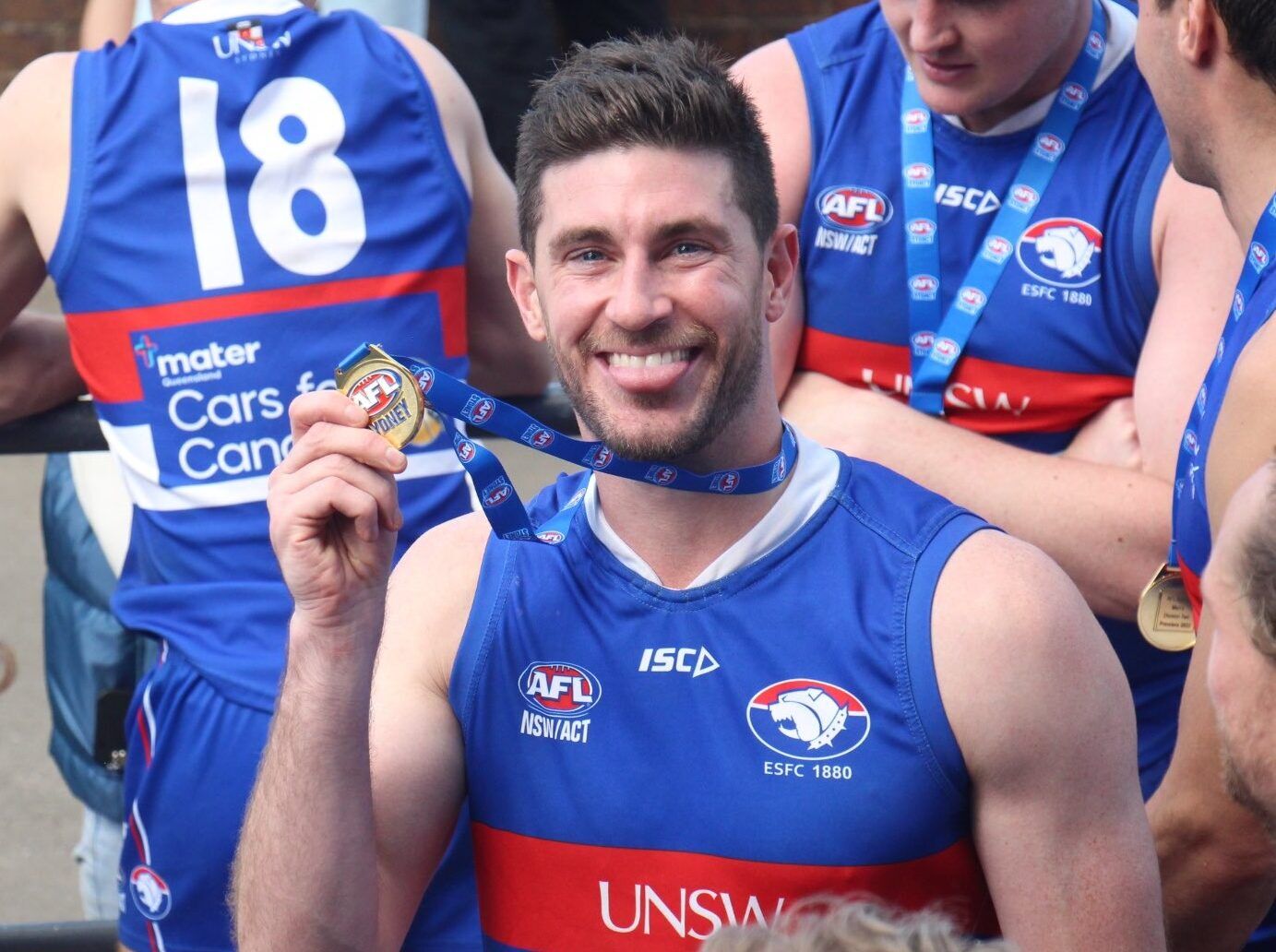After several days of debate, the AFL handed down its judgement for Port Adelaide forward Jeremy Finlayson after his use of an anti-gay slur during a match. The player will serve a three-game ban, and Finlayson will also pay for his own mandatory LGBTQ-inclusion training course.
At least one gay athlete in Aussie Rules Football is applauding the suspension.
Michael O’Donnell has never played in the AFL but he’s recently been in high demand for media outlets covering this aspect of the elite tier of Australia’s most popular sport.
O’Donnell is a rare example of an out gay man playing the sport competitively. The Aussie version of football is steeped in tradition and draws huge crowds across the country.
Get off the sidelines and into the game
Our weekly newsletter is packed with everything from locker room chatter to pressing LGBTQ sports issues.
It was in August last year that O’Donnell’s story came to wider attention when he featured in a TV documentary asking why there has never been an out gay or bi professional in the history of the men’s sport.
He was immersed in football culture as a teenager growing up at a suburban Melbourne club but says the anti-gay language he frequently heard took its toll.
“It internalizes your homophobia and it creates a sort of self-perpetuating hate within you as well, and that can be really, really difficult to deal with,” he said in the film.
O’Donnell, who plays for UNSW Eastern Suburbs Bulldogs in a regional league in Sydney, told Outsports the suspension is “a significant punishment” in the circumstances.
“Finlayson made a poor decision — he almost immediately acknowledged his actions, and apologized both privately and publicly.
“I think the AFL have taken this into consideration when handing down their punishment.”
It’s the second incident of homophobic language this season for the sport, following North Melbourne head coach Alastair Clarkson directing an anti-gay insult at St Kilda players during a pre-season game last month. He was fined and handed a suspended ban.
But O’Donnell believes that on-field player-against-player abuse of this nature is not common.
“This is a fairly isolated incident of homophobic abuse within the AFL at the professional level, and the significant reaction from the community and media has shown how times have changed,” he added.
“The AFL needed to make it clear to players, officials and fans that homophobic abuse is unacceptable, and I think this is a major step towards that.”
Port Adelaide president David Koch came under fire for suggesting that because it happened “in the heat of battle,” the Finlayson incident was “very different” from the one involving Clarkson.
Discussion around LGBTQ inclusion in football has consequently dominated Australian sports media airwaves and social media platforms. The players’ union, the AFLPA, has reacted negatively to the Finlayson decision, accusing AFL chiefs of “double standards.”
O’Donnell says that the intense focus will have been tough for closeted players.
“The attention on the issue, both in the media and social media, can be difficult. The trolls come out, additional homophobic abuse gets levelled, and it can be quite daunting,” he says.
“While I’m now in a position where these sorts of comments don’t do me much harm — I’m confident in who I am, and proud of who I am — I have concerns for younger people and those who have not come to terms with their sexuality yet.
“I remember being 13 and hearing these sorts of words, and it turned me away from playing the game for 15 years. That’s the damage these sorts of comments can do, and it’s the last thing we want.”

O’Donnell is now in his mid-30s and says returning to the sport after coming out as gay and being open with his teammates at his Sydney-based club was the “best thing” to do.
“A lot of the negative perceptions of team sports like AFL is external,” he says.
“Since playing again, I’ve always felt safe, welcome and protected, and there’s no doubt that having a gay player at the football club has reduced the casual homophobic language that almost certainly existed.
“It takes a long time to be confident in who you are — but know that if you’re one of those people who is openly gay and playing team sport, you are setting an example for the next generation, and that is incredibly important.”
Related


This athlete faces a ban for using ‘the worst’ anti-gay slur – but for how long?
It’s another AFL homophobia incident. Port Adelaide’s Jeremy Finlayson has apologized but opinions differ over the punishment he should get.
By Jon Holmes | April 8, 2024























